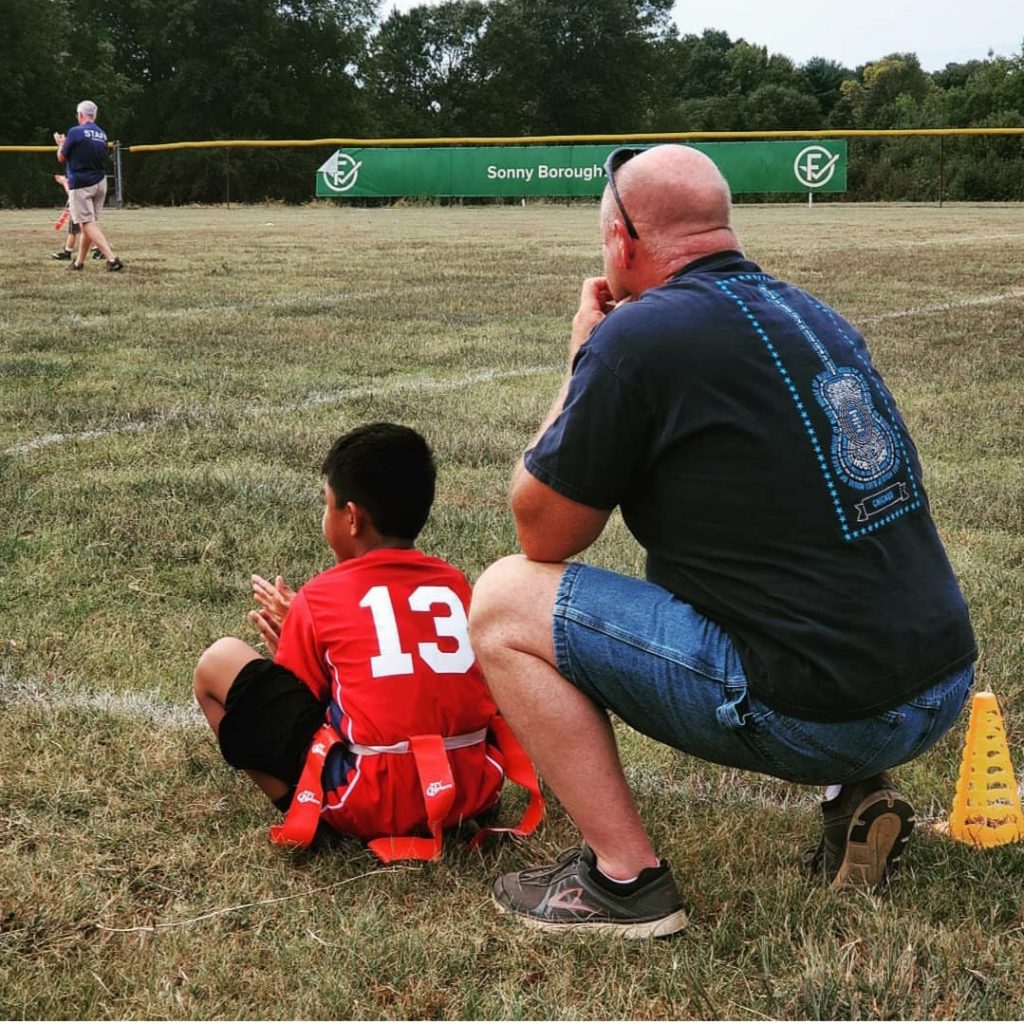
Therapeutic foster care can be misunderstood. The children in therapeutic foster care may have many of the same or similar needs as children in regular care, but often a need for additional support has been determined. All children in foster care have experienced trauma. All children in foster care will have needs that must be met by their foster parents and through resources and services.
The first step in becoming a SC foster parent is to choose between standard and therapeutic foster care. Children in therapeutic foster care will need additional support and services. Kim from South Carolina Youth Advocate Program, a statewide therapeutic foster care licensing agency, is here on #FosterFridayLive to answer all our questions!

Kim is a foster parent herself. She currently has two children placed in her home. Her and her husband have been fostering for six years and have had 11 kids in their home. She feels like she has a great perspective as a professional and also as a foster parent. She can share what it looks like realistically to be a therapeutic foster parent every day in her own home. When families come to SCYAP, Kim says they are often excited but also sceptical because it is such a big decision. So she loves being able to talk to them and calm their nerves, talking to them personally, encouraging them. As she says, “the kids need us.”
What is therapeutic foster care? What is the difference between this and standard foster care?
There are a lot of misunderstandings about therapeutic foster care. The word therapeutic sounds kind of scary, big, intimidating. So often times there is hesitancy. Kids come into care the same way; they’ve been through the same traumas, the same abuse and neglect, but sometimes before they come into care there are some known additional needs- emotionally, behaviorally, medically- and they are placed into therapeutic foster care. That may be information that comes from the family or from DSS. Sometimes when they are placed in care and they begin showing certain behaviors or needs, a certain assessment can be done here in our office that would make them or deem them “therapeutic” to place them in a therapeutic home because therapeutic foster parents are trained and equipped to deal with some of these higher needs. The child could be moved to a therapeutic home or the regular foster family could choose to become licensed for therapeutic foster care. We’ve all been in the situation as regular foster parents where the trauma becomes very real and we start seeing some behaviors. Just because a child is placed in a regular foster home doesn’t mean there aren’t some additional needs. So one of the benefits of therapeutic foster care is that there is extra support to get that family the services they need. It’s really the same kids, it’s where they are in the process.
Who are the children in therapeutic foster care? What are their needs?

A lot of times when you say therapeutic foster care, people may envision a child in a wheelchair or a child who cannot attend regular school or a child who has no social skills at all, but the truth is that our kids are a lot of the same kids that are in regular foster care. The same thing with adults, sometimes trauma and abuse manifests differently. Sometimes our kids just have a little bit extra to work through and they need that little bit extra support. At the end of the day, they’re the same kids.
In therapeutic foster care there are different categories and different levels. We do have medically fragile children from infants on up, special needs children with autism or down syndrome, children with lifelong conditions. Then there are children in levels – basically what the foster parent is going to need to provide for the child. Level one children may have a therapy a week or bi-weekly. Sometimes we see ADHD or they may have some oppositional behaviors like a lot of kids have. Level two they may have two therapies a week. So it kind of builds on that; there is a wide variety. It’s not all medically fragile or special needs.
What we do through the initial licensing process is walk through the process with a foster family. We talk about their weekly schedule. Can they handle two therapies a week? Are they a working parent? Do they stay at home? Most of our parents are working parents- probably 90%. A family can tell us what they are comfortable with. Some families have been nurses and they love medically fragile kids, that’s their expertise, so we are able to match those children with them. But we have a lot of families, me included, who work full time and the tubes and the medical equipment is intimidating, so that wouldn’t be a fit. We assess and the family will assess what they can handle. We never want to set a child up to go into a home that won’t be a success.
Who makes a great therapeutic foster family? How could someone know if they can meet the needs of these children?

A lot of our foster parents have a lot of the same qualities as great regular foster parents. Someone who obviously has the space, the time. You can work full-time, have a busy schedule. Most of our families are extremely busy. The greatest quality is to be able to look at a child and see their potential and really look past the trauma. We’re a big believer that a child doesn’t know how to tell you they’re grieving, they show you their grief. That is so common in therapeutic foster care, so foster parents need to be able to see their potential and really stick with the kids.
SCYAP is an all-inclusive agency so you don’t have to be married; you can be in a domestic partnership. You don’t have to own your home, you can rent. You can be a single parent. We have a lot of single foster parents. Really as long as you have that love and acceptance and that desire to care for children. We have ongoing training throughout the year on specific topics. If you get a child and are struggling to meet their needs, a treatment coordinator is assigned to the child and comes out monthly. They can help connect you to trainings that you need or do any one-on-one discussions to help you better understand the child. We want to give you everything possible so that the child can stay where they’re stable and not have to move repeatedly.
It’s not about the money, but the stipend for therapeutic foster care is different than the stipend for regular foster homes. All foster parents are compensated for the care they are providing. For standard foster homes there is a set board rate for every foster home per day, per child that is set by the state regardless of if you are licensed through DSS or a private agency. With therapeutic foster care that is different. One of the things that is different is that we are funded primarily by medicaid. That is where some of our additional trainings come in as well. We do have a higher board rate to help cover or offset those expenses of extra gas mileage to appointments, going to more parent-teacher conferences and having to take time off of work. Sometimes there are additional expenses in therapeutic foster care and so realistically it makes sense for the rate to be higher. There is not a standard board rate for all therapeutic families because each therapeutic foster care licensing agency is private. The stipend changes based on the needs or level of the child.
What type of support and resources are available to therapeutic foster families?
The biggest difference in therapeutic foster care is the treatment coordinator. When a child is placed in one of our homes, they are assigned a treatment coordinator who comes out once a month. They will often also attend doctors appointments, therapy, school meetings, Foster Care Review Board, alongside the foster parents. They are the ones that you can call late at night or on the weekends, 24/7. There is a 24/7 support line. You can always get in touch with someone on-call. We absolutely have that in place. You don’t have to do it alone. If you have no experience, it’s okay. That’s what the treatment coordinator is for.
Pre-service training is offered through the agency. We like to walk with families from day one through the process. The training is in-depth to talk about therapeutic foster care and what the requirements are going to be. Most of the pre-service training is similar to regular pre-service, but working with medicaid there are some additional training pieces specific to therapeutic foster care. We require CPR; it is offered free at SCYAP. Every two years, you need recertification. You need 16 hours per year which isn’t that different from regular foster care. I know that is a hesitation. You think, “I’m going to have this child who we know will have a little bit higher needs. What is going to be required from the agency to continue to foster?” Training breaks that down and then we offer a lot of support.
Why is therapeutic foster care worth it to you? How do you stay motivated?
Foster care has become my world completely. I have been interested in being a foster parent since I was 12. I wanted my mom to do it and she wouldn’t, so I decided that I would. My husband and I began fostering and two months later I started working with SCYAP. I was learning the foster care world at home and at work. We were licensed for two-and-a-half years as regular foster parents. We had a child who was diagnosed with autism and needed some extra support so we transferred our license to a therapeutic agency. We changed our license to keep that child in our home and receive additional support and services. We haven’t looked back since. The support has made a difference.

It can be tiring. It can be very heavy. Foster care isn’t a light subject. Self-care is very important. The kids we have now came to us one year ago. They weren’t able to trust. They had tantrums several times a day. I remember days just sitting on my porch crying, thinking “how can I do this?” But we stuck with it and we had our treatment coordinator, Kim, to call- which we did, often after hours. We got them into weekly therapy and we saw a difference. We still see that grief and that trauma, but now they let us in. They are a part of our family and they’re happy to be a part of our family. To see that progression, all we did is stick with them and do what we thought was best. That’s what motivates me. We can’t help every child. We need other homes! That’s what fuels me.
South Carolina Youth Advocate Program is one of many foster care licensing agencies. You view the standard and therapeutic agencies in you county here.



